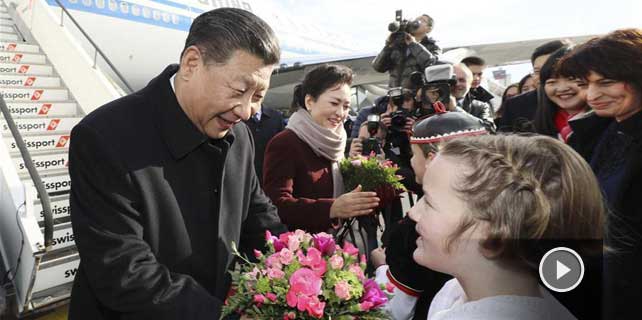Globalization needs champions to convince skeptics
|
|
|
A Davos logo is seen before the annual meeting of the World Economic Forum (WEF) in Davos, Switzerland January 15, 2017. [Photo/Agencies] |
The year 2016 was notable for two ‘black swan’ events with far-reaching consequences. Election of Donald Trump as the next US president and the ‘Brexit’ referendum in the UK have produced significant challenges for globalization. Both developments are outcomes of strong anti-globalization political narratives. Popular endorsement of the narratives in the US and UK reflect deep-rooted resentment among many people in the Anglo-Saxon world towards globalization. Proponents of globalization face the challenge of politically legitimizing the process by highlighting its benefits. Rationalizing globalization would feature prominently in the deliberations of the forthcoming World Economic Forum (WEF) at Davos during January 17-19, 2017.
The fact that national leaders are being elected to top offices of their countries on the basis of their inward-looking political and economic campaigns shows that globalization has made many unhappy. More leaders are likely to exploit such unhappiness for their political goals. This can soon result in a situation where several major world leaders identify with anti-globalization outlooks. The world might get split between countries and leaders that support and oppose globalization. A polarized world of this kind is not conducive to expansion of global trade and growth of global business and production networks.
Globalization needs champions to convince skeptics about its benefits. The role of world leaders becomes extremely important in this regard. The anti-globalization narrative needs to be countered by a more objective and inclusive projection of globalization. Such a narrative must be pioneered by leaders of countries whose people have significantly benefitted from globalization. There is no better example than China in this respect.
Over the last three decades, China has successfully integrated with the world economy. The integration began with trade in goods and proceeded through trade in services. Over time, China has become one of the largest sources of foreign direct investment for the world. The yuan too has become one of the most traded currencies. By integrating deeper with the rest of the world, China has successfully created economic opportunities, jobs and new livelihoods that have lifted thousands from poverty. China’s economic success is a continuation of the success achieved by several Asian economies after the World War II, such as Japan, Korea, Singapore and Malaysia, by responding positively globalization. However, China’s successes from globalization appear more striking than the other countries given its large size and the remarkable transformation it has achieved in the living standards of many of its people.
















